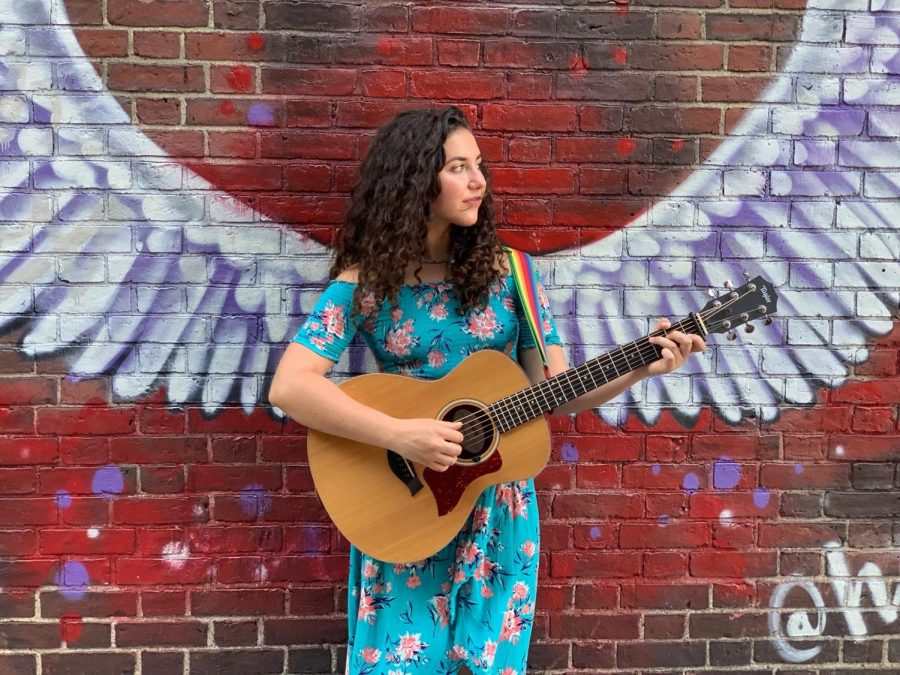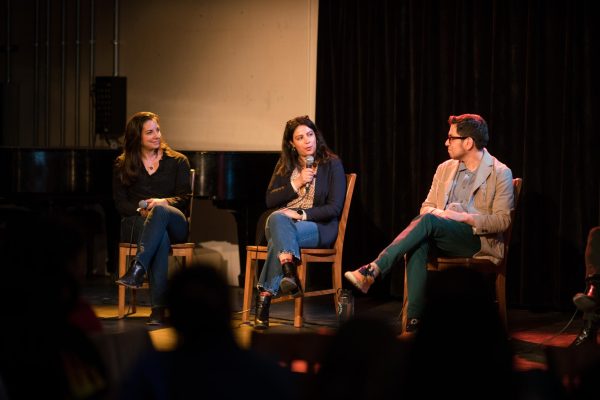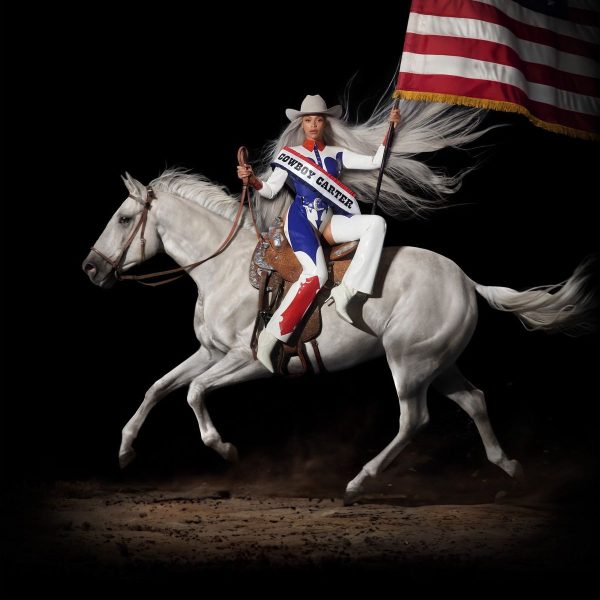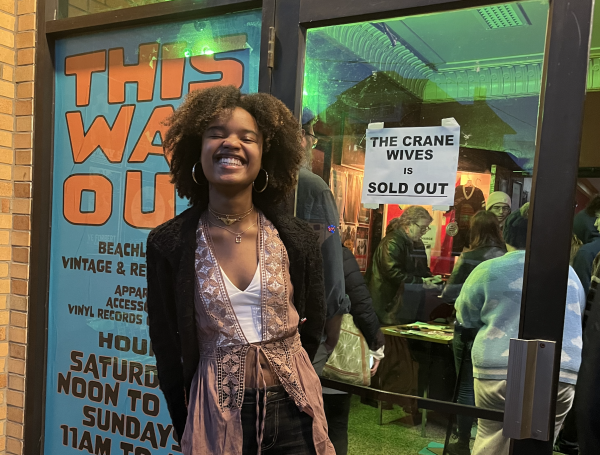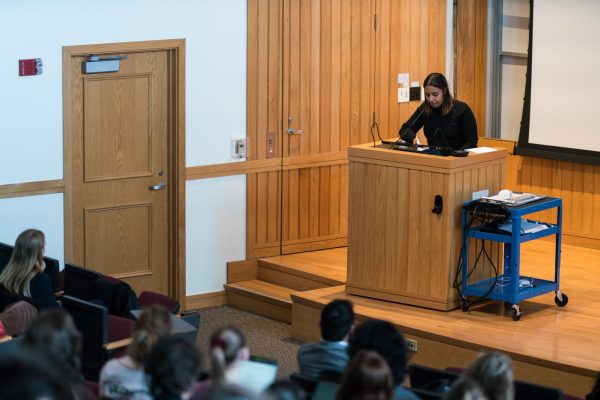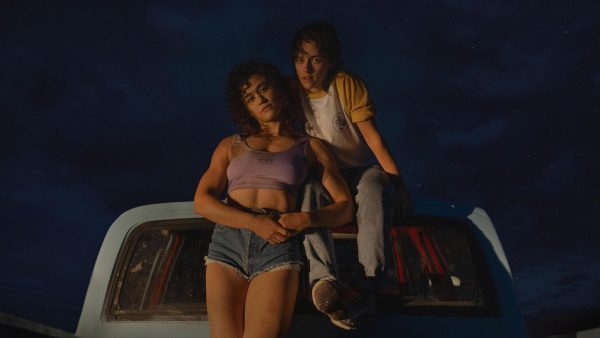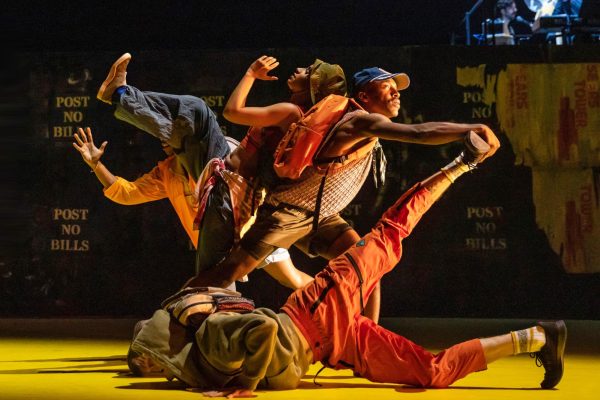College Experience Inspires Student Produced Music
It’s no secret that Oberlin is a very musical place. Between the Conservatory, the Arts and Sciences Orchestra, and various a capella groups, there are always plenty of music performances on campus. However, there is another side of the Oberlin musical scene that doesn’t get nearly as much attention: its extensive arrangement of music producers and engineers.
There are a number of talented students on campus who, in addition to performing onstage, record and edit their own songs and then release them on YouTube, Spotify, and Apple Music. College second-year Megan Beehler, who goes by the artist name lavendink, started playing around with producing during her sophomore year of high school. She started taking it seriously during the pandemic, and soon was responsible for mixing the recording of her high school choir’s entire virtual performance.
“I was a choir kid, we had wanted to do some virtual choirs, and I had a lot of film experience, but not a ton of audio experience,” Beehler said. “So I was really confident that I was able to do the video part and was just kind of figuring out the audio. That was kind of my first experience with trying to put together a bunch of voices or putting together a bunch of tracks that were really audio-based.”
Beehler has since released two albums, The Letters I Couldn’t Write in July 2021 and The College Exp this month. She described the genre of her music as “bedroom indie pop,” though she said she was also categorized as alternative folk by the algorithm of streaming platforms.
College second-year Ella Harrington, who is currently taking a semester off, has released five singles under the artist name Ella Faye. She has been passionate about music her entire life, having started Suzuki violin at the age of three. She first started writing songs when she was 12 years old.
“When I was four, my family started singing with an intergenerational folk chorus in the Boston area,” Harrington said. “So that really opened my musical world up to a really wide range of artists.”
She wrote her first two songs when she was 12 years old. One, called “Memories” honored her late grandfather. She wrote the other, titled “I Remember,” with her best friend Charlotte.
“It was about us coming into our friendship together and a platonic love song.”
Both Beehler and Harrington tell personal stories in their songs, and they noted that it can be intimidating, with Harrington’s record “I Can See the Rain” being about a boy she liked when she was 16.
“The songs that are about people … are not necessarily painting them in the best light,” Beehler said. “It’s ‘this is how I felt at a moment in time’ and it’s not necessarily reflective of how I feel now. And so sometimes I worry that people might feel like I’m exposing them or making them feel like they’re a bad person … Nothing bad [has happened] yet, but it is a little scary.”
Harrington doesn’t like to categorize her music into a particular genre, as she is inspired by a variety of genres including folk, pop, and soul. Double-degree third-year Brock Bierly shares Harrington’s reluctance to categorize their music into a specific genre.
“I think I’d want to walk into oncoming traffic if I had to give my music genres in front of somebody,” Bierly said.
Bierly, a TIMARA student, first developed an interest in music production at a young age because of their interest in robotics. Bierly has also been drumming since they were three years old — their babysitter became fed up with their banging on pots and pans and suggested they actually get a drum set.
“I liked that Megazords came apart and came back together, and I thought it was cool that they were electronic or something,” Bierly said. “And so I got really into the idea of liking techno. I didn’t really listen to much techno, but I was like, ‘Yeah, my favorite genre is techno music.’”
College second-year Lawrence Wright, who produces music under the artist name Comprehensible, started composing music in high school using MuseScore. During his senior year, he had the opportunity to participate in “Game Jam,” which gave him the chance to connect with video game composers working within the industry.
“He was like, ‘Hey, have you heard of this thing called not using MuseScore and moving on to a bigger digital workstation?’ and he showed me the ropes,” Wright said.
Wright has since produced a few songs which have been released on his YouTube channel, including “Nonna’s Song” and “Breestep.” He described his music as “vaguely video game inspired, somewhat classical but not really because the classical people eat me alive for calling it classical.” While Wright does sing and play some clarinet and piano, most of his music is produced digitally.
While Oberlin’s musicians may seem to focus on more serious projects, they also know the importance of letting loose and having some fun. Beehler has produced songs, such as “Rats on Crack” and “Premarital Handholding,” that exist on her YouTube channel.
“My roommate and I did basically improv songs, which is where I start playing some chords and we make up a song together,” Beehler said. “We have basically an improv EP, if you will.”
All four artists said that Oberlin had been integral to their music-making process, whether that’s Wrights’ theory and composition classes in the Conservatory, Bierly’s on-campus collaborations, Beehler’s self-produced single titled “I Cried in Tappan Square,’’ or Harrington’s attendance of Oberlin’s music performances on campus. All of these have acted as sources of inspiration, showcasing the various talents at Oberlin College and Conservatory.


